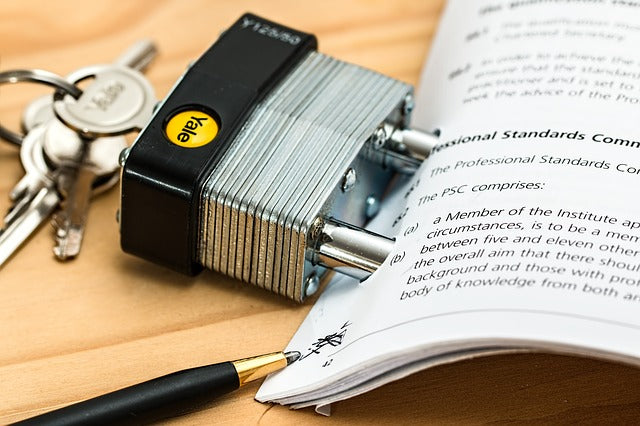Are your feet tired? ‘Cause your red hot ecommerce business has been running through our minds all night.
No entrepreneur is an island and a fine business like yours can land the support of a top notch, dependable agency to help build a website, optimize for better conversions, manage marketing services and more.
Just like dating, finding the right agency can be a rollercoaster ride of emotions. Remember how nervous you were before your first kiss? Still, you’ve got to put yourself out there and trust your instincts. It’s well worth the effort to find a reliable resource.
Whether you’re going out on your first agency search, or you’ve decided that it’s time to “see other agencies,” don’t sweat it. You’re so money, and you don’t even know it! That’s why we’ve screened some eligible Shopify Plus agencies and asked a few of them for insights on finding the relationship that’s right for you.
1. It’s Time to Get Real About Your Needs Vs. Expectations
 “Before you start your search, you need to be honest with yourself,” says Dylan Whitman, CEO at BVAccel – a Shopify partner that offers ecommerce website development, conversion rate optimization and full-service marketing support.
“Before you start your search, you need to be honest with yourself,” says Dylan Whitman, CEO at BVAccel – a Shopify partner that offers ecommerce website development, conversion rate optimization and full-service marketing support.
It’s tough out there – even tougher if you have an unrealistic list of dating requirements. Are you looking for a Porsche but you can only afford a Honda Civic? Then you’re asking an agency to give away all its milk for free.
If you want to buy the cow, Dylan recommends first to determine what you can afford. Then prioritize your primary objectives and desired outcomes to come up with a plan together.
“People want [and often expect] to do everything with the budget they have,” explains Dylan. “But I think it’s better to do a few things extremely well, instead of a bunch of things halfway.”
Mark Arteaga, founder of RedBit Development which offers ecommerce website development, custom Shopify app development and launch marketing efforts adds that his agency offers a tiered pricing system to suit a variety of budgets – from a kick-starter package (for as little as $7,500) that helps companies get a complete Shopify store setup using a Shopify theme, to packages for bigger budgets (around $50,000+) which include more custom design, content, site development, launch marketing support and custom app development/integration.
Once you’ve locked-in your budget and a list of desired agency deliverables, it’s time to start hunting for your ideal match.
2. Agency Dating 101: RFPs and Word of Mouth
 When seeking your agency soul mate, should you send out a request for proposal (similar to creating online dating profile), or leave it up to your industry colleagues to set you up? Let’s review your options and what you should be looking for in both cases.
When seeking your agency soul mate, should you send out a request for proposal (similar to creating online dating profile), or leave it up to your industry colleagues to set you up? Let’s review your options and what you should be looking for in both cases.
Sending out a Request for Proposal (RFP)
Want to know if you and a certain agency are compatible? Dylan says that the more details you can provide when approaching agencies for help, the more accurately they’ll be able to determine if they can meet your needs.
Mark adds that “it’s important to have an outline of what products you want to sell, the price, product descriptions, order fulfillment strategy and the content for key areas of your site.”
A lot of that information can be formatted into a document that is commonly referred to as an RFP. There are many online templates that you can download for free to use as a guideline. Here’s a simplified one to get you started.
You can send RFPs directly to agencies you’ve researched or heard about through colleagues. In addition, you can post them on your blog and via social media (such as your LinkedIn updates and your company page). Some trade media publications will also share RFPs in their classifieds section or newsletters. But you’ll need to do some research and outreach.
Seeking Word of Mouth Referrals
To increase your odds of finding a meaningful agency relationship, a combination of an RFP, plus seeking word of mouth referrals is best. But if you don’t have time to complete an RFP, both agencies request that you, at least, outline how you will define the success of the project (e.g. your KPIs). Plus, start thinking about your website and product content.
“A lot of our work comes through references – either from the Shopify partner page or from customers for which we’ve previously done work. So, if you’re looking for recommendations, it helps to tap into your business network. Then, try to find someone who is local or at least in the same time zone,” says Mark.
At a minimum, he recommends writing down your project goals and providing examples of three ecommerce sites that you love and three you hate.
“It helps lead the direction of your store design, development, and overall branding,” he says. “Although we help customers with branding, you need to start thinking about it too, plus define what value your company is providing customers.”
3. Meeting Their Family
 How do you get to know and trust your potential partner? Dylan argues that it’s extremely important to meet the agency’s extended team [family], or at least get a clear picture of who at the agency will be working on your project.
How do you get to know and trust your potential partner? Dylan argues that it’s extremely important to meet the agency’s extended team [family], or at least get a clear picture of who at the agency will be working on your project.
“Go on LinkedIn and look at the average years of experience of the agency developers or project managers,” he suggests. “Not everyone has to be pedigreed. But you’ll want to know you are getting value for your money.”
Dylan also recommends that you ask the agency how they arrive at their hourly rate and how they justify it based on the talent working on your project.
If you like what they have to say, then take them all to meet your team. “The sales rep or CEO who pitches you the business isn’t likely the person you’ll be dealing with on a day-to-day basis,” he explains. If your team approves of their family, then it’s on to the next step.
4. Before You Commit to a Long-Term Relationship
 Now it’s time to see their true colors. Prior to selecting the agency with which you want to build a new relationship, “make sure to look at what work they have done before,” says Mark. “Also, find out if they have relevant expertise.”
Now it’s time to see their true colors. Prior to selecting the agency with which you want to build a new relationship, “make sure to look at what work they have done before,” says Mark. “Also, find out if they have relevant expertise.”
He explains that it’s better to select an agency that has first-hand knowledge of the Shopify platform, rather than hiring a creative agency that will outsource part of the work to a dev shop. “We’ve had to fix a lot of projects for clients that were originally done this way,” he says.
Mark also encourages companies to put all your cards on the table during the first meeting. “If the agency understands your key deliverables and expectations upfront, there won’t be any huge surprises later on,” he says.
Finally, Dylan recommends to “ensure that your communications tech stacks jive.” In other words, determine whether you’re comfortable using the software solutions that the agency uses (e.g. project management tools like Asana and video conferencing platforms like Skype or Google Hangouts).
Once you’ve found the agency of your dreams, it’s time to master the art of building a lasting relationship, or at least get to the end of your first project without any major misunderstandings. Come back next week when we’ll talk about making the most of your budding agency-client partnership.
 About The Author
About The Author
Andrea Wahbe is a freelance B2B marketing strategist and corporate storyteller who writes about Canadian SMEs, marketing, and digital media trends. Follow her on Twitter.
Read more
- Designing the New Customer Experience: What Happens After Checkout?
- A Strategy for Human Resources in our Current Climate
- 17 User-Generated Content Examples and 5 Tactics to Grow $15M+ in Annual Sales
- Selling $3 Billion on Autopilot: Less Effort, More Growth via Ecommerce Automation
- 5 Easy Tips For Getting Started With Conversion Rate Optimization
- 15 Conversion Rate Optimization Strategies from the Top Fashion Brands
- Marketing Calendars for 2018’s Holidays: Ecommerce, Social & Sales
- Win the Ecommerce Holidays with a Strong Customer Acquisition Strategy
- How to Avoid the Hidden Cost of Black Friday, Cyber Monday Sales and Increase Customer Lifetime Value through Personalized Email
- Rethinking Retargeting: Finding the Line Between Stalking and Solving


